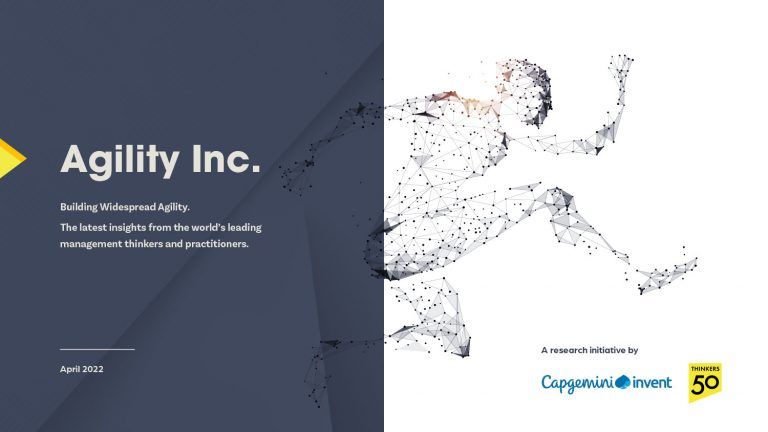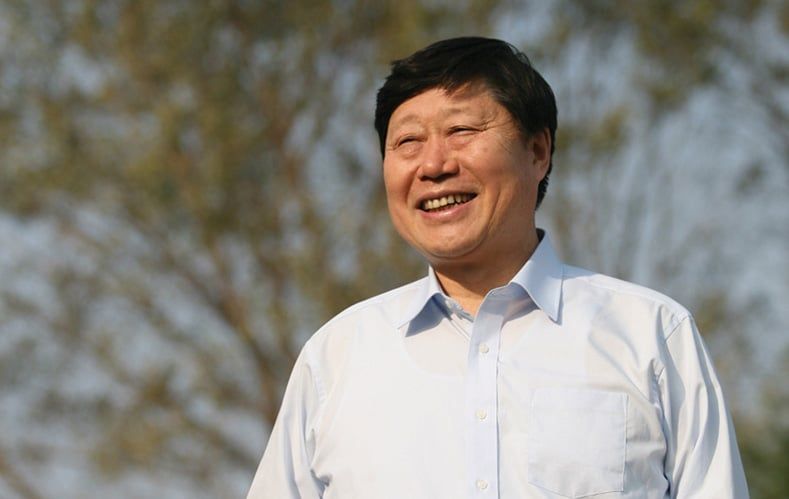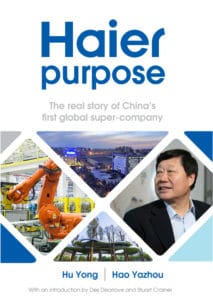

The Haier CEO Zhang Ruimin was deeply influenced by Chris Anderson, author of The Long Tail and Makers: The New Industrial Revolution. During the first half of 2014, when Anderson visited Haier in Qingdao, China, Zhang Ruimin broke down Anderson’s works, talking about the core of each book as well as his own personal understanding.
He felt that Anderson’s Makers read more like a prophecy of the future – a maker can subvert a company. However, it would be extremely difficult to achieve this vision. Zhang Ruimin asked Anderson whether, if he created an enterprise of makers, after its initial success, the company could still operate like a maker company. Anderson said it would not be possible, as it would have to return to being a traditional company, from architecture to the supply chain.
Zhang Ruimin means the term ‘maker’ to have an entrepreneurial connotation, it is not just intended to suggest people involved in manufacturing. A key concept for the organization of the Haier platform is the idea that everyone is a maker. Haier employees can start a business on the Haier platform, and can even do something like ‘de-Haierization’.
When several entrepreneurs get together, that becomes a micro-enterprise. The term began to be used by Haier in the second half of 2013, as a new organizational concept. It is a means to allow all Haier employees to become makers. Within Haier, the term does not refer to the micro-business you might find in general business terminology, limited by the number of people and operational turnover, but refers to businesses created and developed on Haier’s entrepreneurship platform, by a group of makers, which could be two or three people, or 20 or 30 people, or even 200 or 300 people. Only three or four people are involved in the micro-enterprise ThundeRobot, while the Smart Shenyang Plant micro-enterprise involves hundreds of people.
The micro-enterprise concept is likely to gradually replace the company’s thousands of self-organising units. Within the company these independent units are labeled as ZZJYTs (standing for zi zhu jing ying ti). Some micro-enterprises are indeed new market entities, for example, ThundeRobot laptops, Air Boxes and Water Boxes. For some micro-enterprises, such as its Shenyang factory, the most important thing lies in the spiritual aspects: it tells employees that any innovation they make actively could be disruptive.
Of course, the goal of the platformization of Haier is to subvert the entire manufacturing process, and micro-enterprises are just the first step. Allowing employees to have an entrepreneurial spirit is the only way to develop makers who can really show subversive abilities in the future.
In 2013, while stressing the ‘aligning individuals and goals’ business model, Zhang Ruimin announced his vision for Haier employees: ‘Everyone is a CEO’. This is because the ‘aligning individuals and goals’ model demands a very highly smooth processes. The flow of the smooth processes will inevitably lead to the increased complexity of the value-added work. The situation where one person faces the market is like the one where a traditional business process faces the market, even if the non-value added work was reduced, some basic bonding work still needs to be done. Employees are not only required to have a strong self-driving force, but also need to develop the ability of a CEO to offer complex services. Those accustomed to the way of thinking that in large companies everyone does not think outside of his own position must now face the market with a strong business philosophy, treating customers from the perspective of the company.
In 2014, after clarifying the direction of Haier as a platform-based organization, Zhang Ruimin proposed the slogan ‘everyone is a maker’. In fact, the final status after the enterprise-wide reconstruction will likely be a system in which individuals can directly use the power of the company to achieve their own personal goals. Achieving this will push the traditional company to go beyond the “organizational containers”, as the enterprise will have turned into a social platform. This enables Haier’s subversion formula, in which everyone moves from creating products to creating makers.
 Who are the makers? This is the key question. Zhang Ruimin stresses the two-way aspect of this concept: the traditional employees, who can only innovate within the organization, can change from being registered to being online; at the same time, social resources can come into Haier, starting online and registered businesses. If ‘everyone is a CEO’ is some how advocated from the inside perspective of the enterprise, ‘everyone is a maker’ is obviously from a completely open mind. It is clear that Zhang Ruimin has intentionally erased organizational boundaries, emphasizing the socialization trend of the organization.
Who are the makers? This is the key question. Zhang Ruimin stresses the two-way aspect of this concept: the traditional employees, who can only innovate within the organization, can change from being registered to being online; at the same time, social resources can come into Haier, starting online and registered businesses. If ‘everyone is a CEO’ is some how advocated from the inside perspective of the enterprise, ‘everyone is a maker’ is obviously from a completely open mind. It is clear that Zhang Ruimin has intentionally erased organizational boundaries, emphasizing the socialization trend of the organization.
The ‘aligning individuals and goals’ model, ‘ZZJYTs’ and ‘makers’ are all pointing to one goal – self-motivation and self-management. Haier hopes to turn itself into a large community.
This is an edited extract from Haier Purpose by Hu Yong and Hao Yazhou now available from Thinkers50 and Infinite ideas.

Thinkers50 Limited
The Studio
Highfield Lane
Wargrave RG10 8PZ
United Kingdom

Thinkers50 Limited
The Studio
Highfield Lane
Wargrave RG10 8PZ
United Kingdom

| Cookie | Duration | Description |
|---|---|---|
| LANG | 9 hours | Linkedin set this cookie to set user's preferred language. |
| nsid | session | This cookie is set by the provider PayPal to enable the PayPal payment service in the website. |
| sp_landing | 1 day | The sp_landing is set by Spotify to implement audio content from Spotify on the website and also registers information on user interaction related to the audio content. |
| sp_t | 1 year | The sp_t cookie is set by Spotify to implement audio content from Spotify on the website and also registers information on user interaction related to the audio content. |
| tsrce | 3 days | PayPal sets this cookie to enable the PayPal payment service in the website. |
| x-pp-s | session | PayPal sets this cookie to process payments on the site. |
| __cf_bm | 30 minutes | This cookie, set by Cloudflare, is used to support Cloudflare Bot Management. |
| Cookie | Duration | Description |
|---|---|---|
| l7_az | 30 minutes | This cookie is necessary for the PayPal login-function on the website. |
| Cookie | Duration | Description |
|---|---|---|
| CONSENT | 2 years | YouTube sets this cookie via embedded youtube-videos and registers anonymous statistical data. |
| _ga | 2 years | The _ga cookie, installed by Google Analytics, calculates visitor, session and campaign data and also keeps track of site usage for the site's analytics report. The cookie stores information anonymously and assigns a randomly generated number to recognize unique visitors. |
| _gat_gtag_UA_10408481_1 | 1 minute | Set by Google to distinguish users. |
| _ga_ZP8HQ8RZXS | 2 years | This cookie is installed by Google Analytics. |
| _gid | 1 day | Installed by Google Analytics, _gid cookie stores information on how visitors use a website, while also creating an analytics report of the website's performance. Some of the data that are collected include the number of visitors, their source, and the pages they visit anonymously. |
| Cookie | Duration | Description |
|---|---|---|
| NID | 6 months | NID cookie, set by Google, is used for advertising purposes; to limit the number of times the user sees an ad, to mute unwanted ads, and to measure the effectiveness of ads. |
| test_cookie | 15 minutes | The test_cookie is set by doubleclick.net and is used to determine if the user's browser supports cookies. |
| VISITOR_INFO1_LIVE | 5 months 27 days | A cookie set by YouTube to measure bandwidth that determines whether the user gets the new or old player interface. |
| YSC | session | YSC cookie is set by Youtube and is used to track the views of embedded videos on Youtube pages. |
| yt-remote-connected-devices | never | YouTube sets this cookie to store the video preferences of the user using embedded YouTube video. |
| yt-remote-device-id | never | YouTube sets this cookie to store the video preferences of the user using embedded YouTube video. |
| yt.innertube::nextId | never | This cookie, set by YouTube, registers a unique ID to store data on what videos from YouTube the user has seen. |
| yt.innertube::requests | never | This cookie, set by YouTube, registers a unique ID to store data on what videos from YouTube the user has seen. |
| Cookie | Duration | Description |
|---|---|---|
| DEVICE_INFO | 5 months 27 days | No description |
| loglevel | never | No description available. |
| m | 2 years | No description available. |
Thinkers50 Limited has updated its Privacy Policy on 28 March 2024 with several amendments and additions to the previous version, to fully incorporate to the text information required by current applicable date protection regulation. Processing of the personal data of Thinkers50’s customers, potential customers and other stakeholders has not been changed essentially, but the texts have been clarified and amended to give more detailed information of the processing activities.